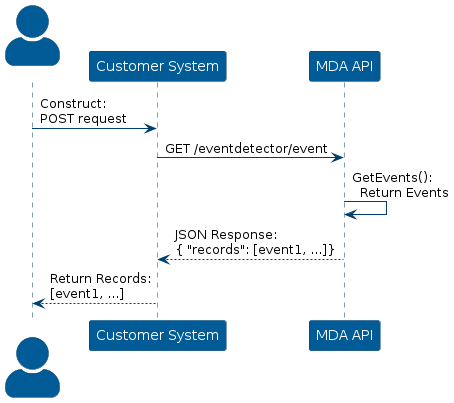Event Detectors Configurations
Monitoring certain events is crucial in damage protection, causality assessment, and ensuring timely response to minimize operational disruptions and safeguard assets. Event detectors in the MDA system can be configurated to monitor specific areas and alert the user when certain events occur.
This article will cover the use cases for such event detectors and how to interact with the API.
The base url for the endpoints specified in this article is as follows:
https://demo.ghmaritime.com/api/eventdetectorCreate an Area Event Detector
To detect events in a specific area, construct a POST request via the /definition endpoint, where the request body specifies the name of the detector, type of detector (area in this case), and the geometry of the area.
The geometry should be formatted as a GeoJSON object and wrapped in a "geometry" field in the request body.
If the request is a succes, the API will respond with the id of the detector, meaning that a detector has been created in the system.
Additionally, the detector can also filter the events and only alert if some constraint is fulfilled. To do this, add the “filter” field in the request body and specify the constraint as a logical condition as a string.
Visualization of the process is depicted below:

To view the events from the newly created detector, follow the steps in Get Events from an Event Detector
Get Events from an Event Detector
To receive events from a detector, it is important to note that the detector must first be created and must have already detected at least one event. If an event detector has not been created yet, follow the steps at Create an Area Event Detector
To get the events that has been alerted from your detectors, construct a GET request via the endpoint /eventdetector/event.
From this, the API will respond with a JSON encoding of a record of all events detected by your detectors.
Visualization of the process is depicted below:

